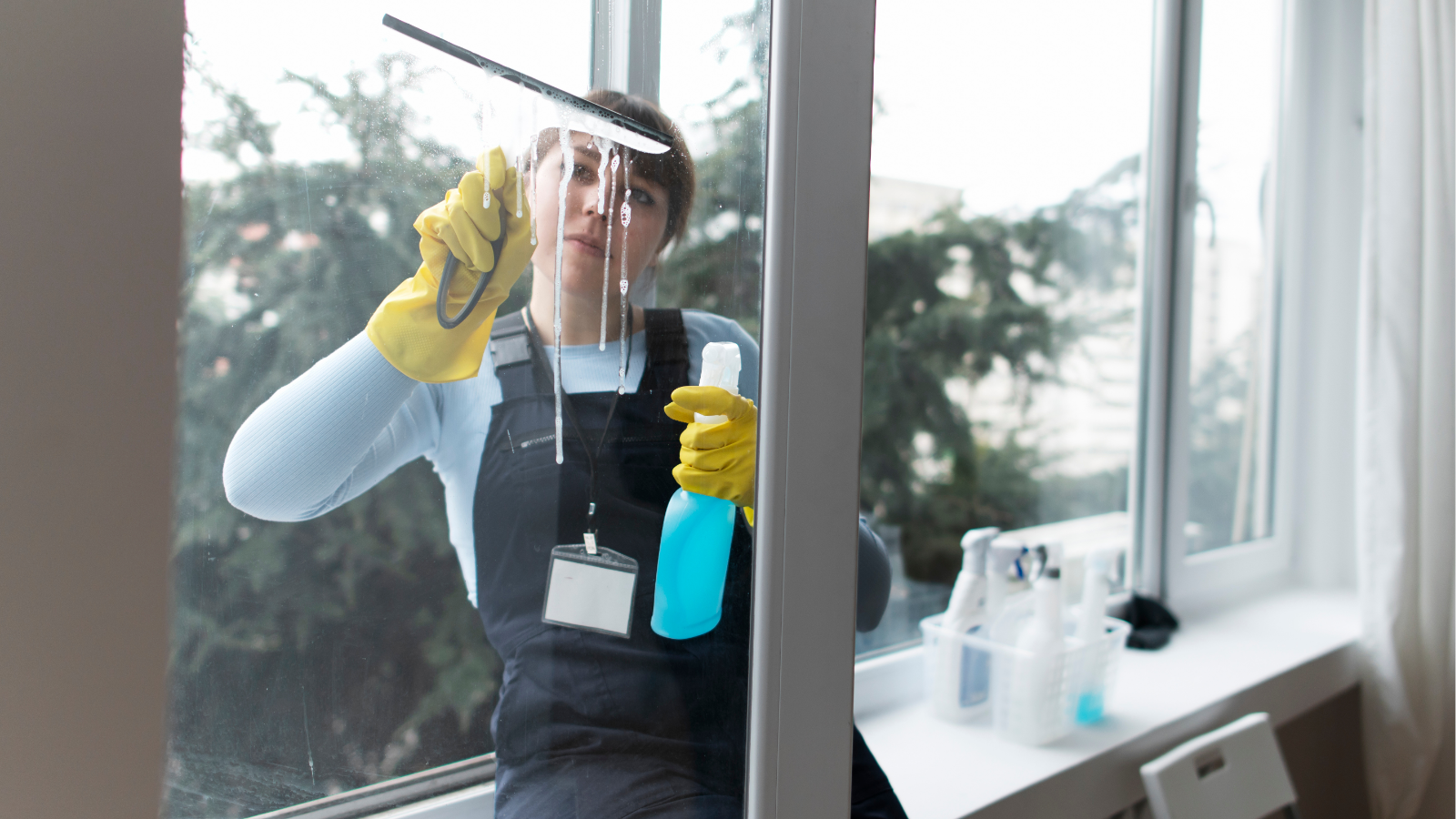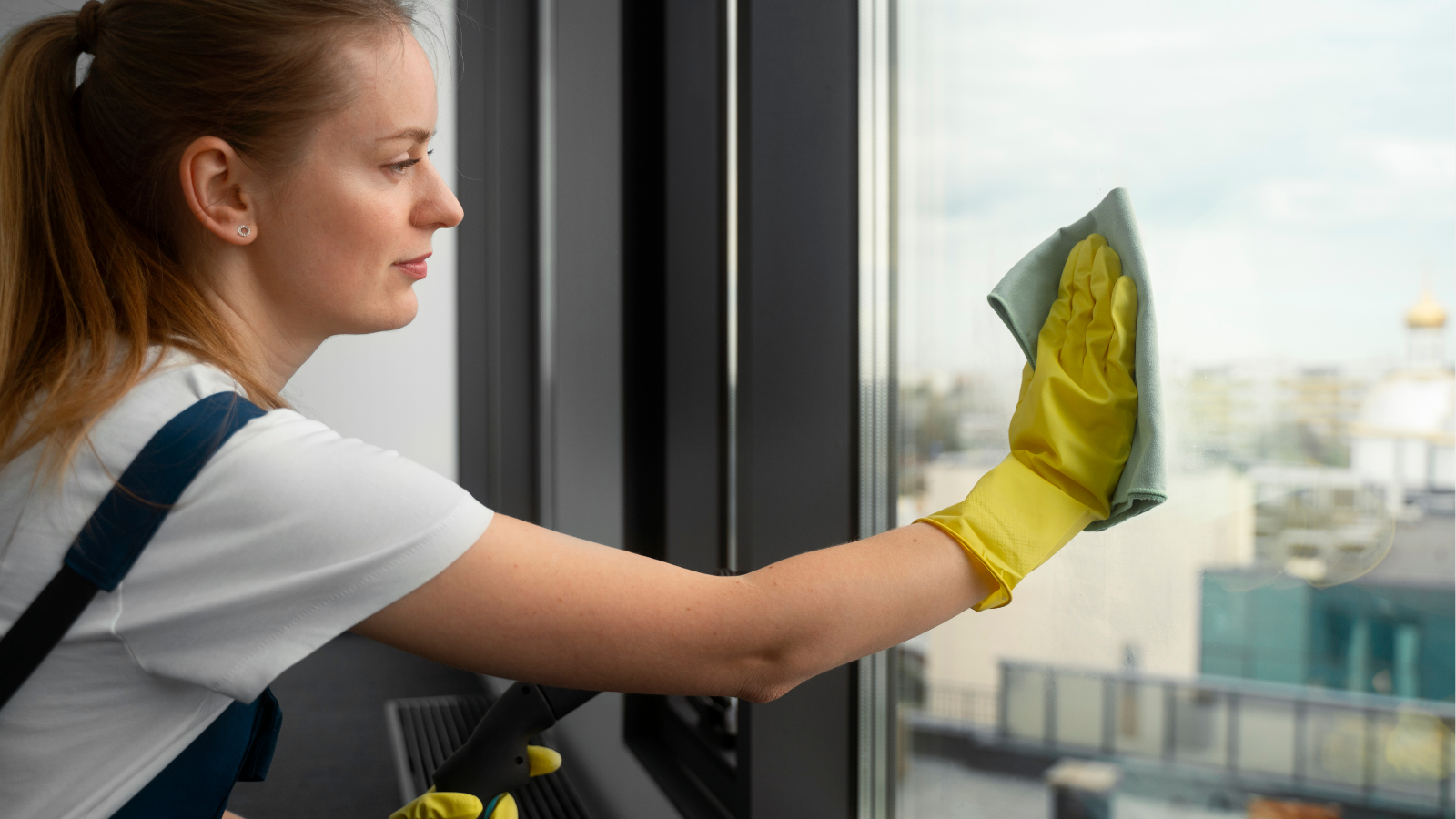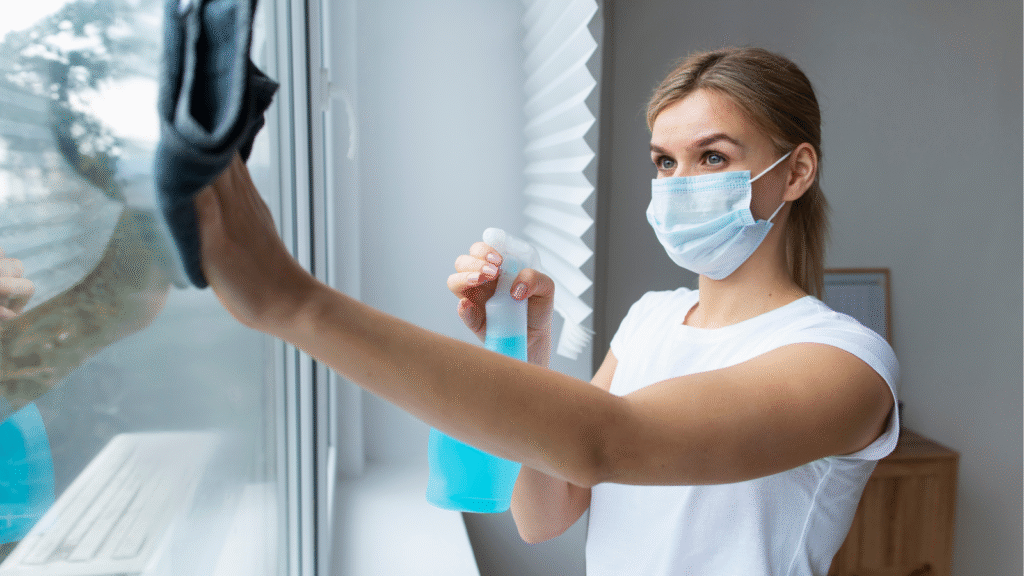Window screens protect your home by keeping insects, dirt, and debris outside while letting fresh air in. Over time, however, screens collect dust, pollen, and grime. This buildup not only makes them look unpleasant but also blocks airflow. Learning the best way to clean window screens ensures your home stays bright, clean, and welcoming while improving indoor air quality.
Dirty screens can affect more than appearance. They restrict ventilation and reduce the efficiency of your cooling system. In Tampa, FL, the humid climate makes it even more important to keep screens clean, as mold and mildew can form quickly.
Cleaning your screens regularly keeps your home healthier and more comfortable. Knowing how to maintain them properly will also extend their lifespan and reduce the need for replacement.

Why Window Screen Cleaning Matters
Window screens are exposed to the elements year-round. Wind blows dust, pollen, and debris against the mesh. Rain leaves behind water stains and mineral deposits. Birds and insects can leave marks, while everyday air pollution adds a thin layer of grime. Without cleaning, this buildup becomes harder to remove over time.
Clean screens improve the look of your windows, making your home appear well-kept from inside and out. More importantly, they enhance airflow. If your screens are clogged with dust, your air conditioning has to work harder to keep the home cool. Proper cleaning is not just cosmetic—it’s practical and energy-efficient.
Preparing to Clean Window Screens
Before you start, it’s important to prepare properly. Remove the screens from the windows carefully to avoid bending the frames. Place them on a clean, flat surface such as your driveway, patio, or even a large tarp. Having the right supplies makes the job easier and prevents damage to the mesh.
Gather a soft brush, a bucket of mild soapy water, and a garden hose. For tougher stains, you might need a vinegar and water mix. Avoid harsh chemicals or strong sprays that can weaken the screen. With simple supplies and a little time, you can restore clarity and airflow to your home.
The Best Way to Clean Window Screens
- Brush off loose dust and debris. Use a soft-bristle brush to remove surface dirt. This makes the washing step more effective by clearing the top layer of buildup.
- Vacuum for finer particles. A vacuum with a brush attachment helps lift out stubborn dust or pet hair that clings to the mesh.
- Scrub gently with soapy water. Dip a sponge or cloth into mild soapy water and clean both sides of the screen using circular motions.
- Rinse with a garden hose. Set the hose to a light spray and wash away soap and grime without applying too much pressure.
- Dry completely before reinstalling. Let the screens air dry fully to prevent mold or mildew before placing them back in the window.

Deep Window Cleaning for Stubborn Dirt
Sometimes, regular soap and water aren’t enough. If your window screens haven’t been cleaned in years, they may need a deeper approach. A mixture of vinegar and water can break down stuck-on grime and remove stains without harming the mesh. Simply spray the solution onto the screen and let it sit for ten minutes before scrubbing.
For grease or heavy dirt, a mixture of baking soda and water can also help. Sprinkle baking soda directly onto a damp sponge and scrub gently. Always rinse thoroughly afterward to avoid residue buildup. Deep cleaning once or twice a year restores your screens to like-new condition.
Quick Maintenance Tips for Window Screens
Keeping screens clean doesn’t have to be a big task every time. With simple upkeep, you can extend the time between deep cleanings. Here are a few quick maintenance tips:
- Dust the screens monthly with a vacuum brush attachment.
- Rinse with water during pollen season to prevent buildup.
- Inspect screens for holes or damage while cleaning.
- Apply protective sprays to prevent rust on metal frames.
Mistakes to Avoid When Cleaning Screens
One of the biggest mistakes homeowners make is using pressure washers on screens. High water pressure can tear the mesh or bend frames. Another mistake is scrubbing too hard with stiff brushes, which weakens the fibers. Gentle methods are always the best way to clean window screens safely.
Avoid using ammonia-based cleaners or bleach, as these can discolor the mesh and damage the frame over time. Finally, never reinstall wet screens, since trapped moisture can encourage mildew growth. Let them dry fully before putting them back in place to keep your home safe and fresh.
How Often Should You Clean Window Screens?
The frequency of cleaning depends on your environment. In coastal or high-pollen areas, cleaning every two to three months may be necessary. For most homes, a thorough cleaning twice a year is sufficient to keep airflow clear and views unobstructed.
Routine maintenance prevents screens from becoming stained or permanently dirty. With Florida’s climate, it’s better to err on the side of more frequent cleanings. Regular attention not only improves your home’s appearance but also ensures a healthier indoor environment for your family.

Professional Window Screen Services
While cleaning is manageable for most homeowners, some screens are tricky to remove or too delicate to handle. In such cases, professional services can help. A skilled technician has the tools and experience to clean screens without damaging them. They can also repair or replace torn mesh, ensuring your windows stay functional.
At Eclipse Service Hub, we provide expert screen cleaning, repair, and replacement for homeowners in Tampa, FL. Our team ensures your home’s screens remain in top condition year-round. Whether you need routine maintenance or specialized care, professional service guarantees results that keep your windows looking and performing their best.
Bring Fresh Air Back Into Your Home
Don’t let dirty screens block light, airflow, and comfort. Regular cleaning makes a big difference in your home’s appearance and indoor air quality. If you need help beyond DIY methods, call Eclipse Service Hub for professional screen cleaning and repair. Keep your windows clear, your air fresh, and your home looking its best with expert care.
FAQs About Cleaning Window Screens
What is the best cleaner for window screens?
Mild dish soap mixed with warm water works best. For tough stains, vinegar or baking soda solutions are safe alternatives.
Can I pressure wash my window screens?
No, high-pressure water can damage the mesh or frames. Always use a garden hose with gentle spray settings.
How often should I clean my screens?
Most homeowners should clean screens at least twice a year. In dusty or coastal areas, more frequent cleaning is recommended.
Should I remove window screens before cleaning?
Yes, removing them makes cleaning easier and ensures both sides of the mesh are washed properly. It also prevents water from dripping into your home.


